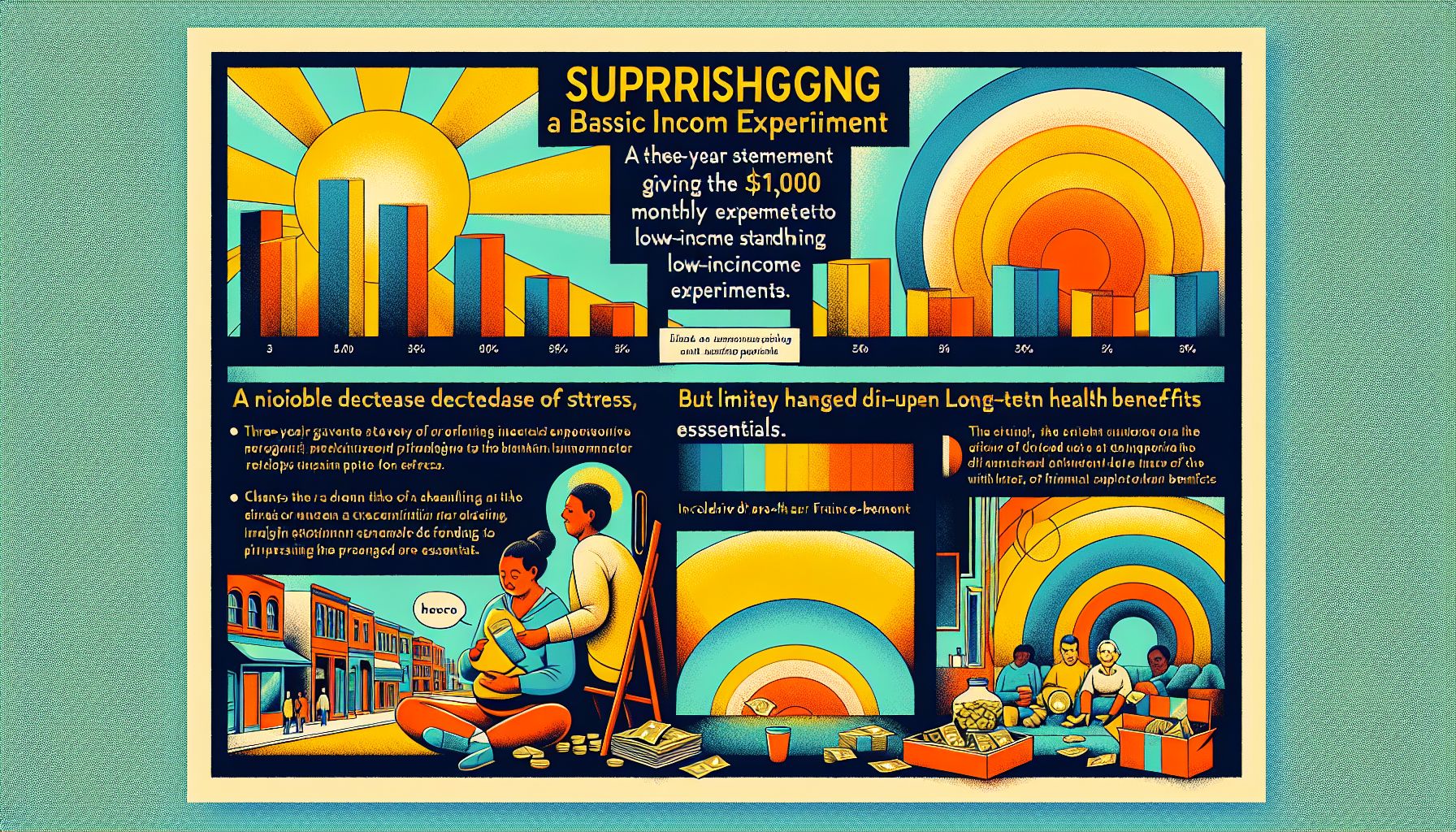OpenAI CEO's Basic Income Experiment Reveals Surprising Results

San Francisco, Tuesday, 23 July 2024.
Sam Altman’s three-year study, giving $1,000 monthly to low-income participants, shows recipients primarily spent on essentials. While stress initially decreased, long-term health benefits were limited. The experiment offers valuable insights into universal basic income’s potential impact on work and financial decision-making.
Introduction
Sam Altman’s three-year study, giving $1,000 monthly to low-income participants, shows recipients primarily spent on essentials. While stress initially decreased, long-term health benefits were limited. The experiment offers valuable insights into universal basic income’s potential impact on work and financial decision-making.
Initial Promising Outcomes
The study, conducted by OpenResearch, a non-profit funded by OpenAI CEO Sam Altman, involved 3,000 participants from Texas and Illinois. The participants, aged 21 to 40 and earning less than $30,000 per year, were divided into two groups. One-third received $1,000 per month, while the control group received $50 monthly[1][2]. During the first year, the recipients reported significant reductions in stress, mental distress, and food insecurity[3].
Spending Patterns
Recipients primarily used the money for basic needs such as rent, food, and transportation. An interesting observation was the increased financial support to their immediate surroundings[1]. The study found that recipients increased their overall spending by approximately $310 monthly, with the bulk going towards essential needs[4].
Health and Well-being
While the initial phases showed a reduction in stress and an improvement in mental health, these effects diminished over the subsequent years. Despite the financial assistance, the study did not find significant improvements in long-term physical health or a substantial increase in access to healthcare services[5]. Moreover, there was a notable reduction in problematic alcohol use by 20% and a 53% decrease in the use of non-prescribed painkillers[3].
Impact on Employment
One of the key findings was the impact on recipients’ employment decisions. The financial cushion allowed recipients to be more selective in their job searches, opting for positions that aligned with their personal goals and values[5]. Some participants took lower-paid entry-level positions in preferred fields, leading to better long-term career prospects. For instance, one recipient transitioned to a six-figure salary within two years after initially accepting a pay cut[2].
Broader Implications for AI and Work
Altman has long advocated for universal basic income as a buffer against the job displacement anticipated due to AI advancements. This experiment aligns with his vision of a future where people engage in more fulfilling activities while AI handles repetitive tasks. The study’s findings underline the complexities of implementing universal basic income as a solution to future economic challenges posed by AI[6].
Conclusion
Altman’s experiment offers a nuanced understanding of the benefits and limitations of universal basic income. While immediate financial relief can reduce stress and enable more deliberate career choices, it does not fully address long-term health and well-being issues. As AI continues to reshape the labor market, such studies provide essential insights into how society might adapt to these changes. The data gathered will undoubtedly fuel ongoing debates about the feasibility and effectiveness of universal basic income as a social safety net.

